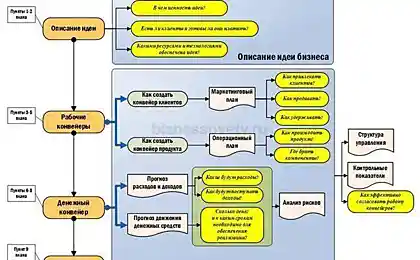210
How to recognize a young person who can make money or has potential

In the modern world, the ability to earn money has become one of the key skills that determine life success. But how do you single out the many ambitious young people who really have the financial potential? Psychologists, successful investors, and business analysts have identified several characteristics that help identify future millionaires before they reach financial success.
Psychological markers of financial potential
Delayed Satisfaction and Long-Term Thinking
The famous Stanford marshmallow experiment, conducted by psychologist Walter Michel in 1972, showed a direct correlation between the capacity for delayed satisfaction in childhood and financial success in adulthood. Young people with high earning potential demonstrate the ability to sacrifice short-term pleasures for long-term goals.
Such people will prefer to invest in education or business instead of buying expensive gadgets. They understand the concept of opportunity value and can calculate the long-term benefits of current investments.
Cognitive flexibility and adaptability
Research from Harvard Business School shows that successful entrepreneurs have a high level of cognitive flexibility – the ability to quickly switch between different concepts and adapt to new situations. They’re not afraid to change their strategy if the current approach doesn’t work.
A young person with financial potential easily masters new technologies, quickly learns from mistakes and does not cling to outdated methods. He sees failure as a source of valuable experience, not as a cause for despair.

Behavior indicators
Proactivity and initiative
Potential high-paid professionals don’t wait to be given a job. They are looking for problems to solve and opportunities to earn money. Such people often initiate projects at university, organize events or create small businesses while still studying.
They actively develop their network of contacts, attend professional events and do not hesitate to offer their services to potential clients or employers.
Financial Literacy and Interest in Investment
Young people with high earning potential begin to be interested in financial instruments early. They learn the basics of investing, understand the difference between assets and liabilities, and follow the financial news.
Such people often keep records of their income and expenses, plan budgets, and look for ways to optimize taxes. They see money not as an end in itself, but as a tool to achieve larger goals.
Social skills and communication
According to a Carnegie Mellon University study, 85% of career success is determined by social skills and only 15% by technical knowledge. Young people with high earning potential can:
Effectively present their ideas and convince interlocutors. They understand the psychology of sales and are able to find a common language with people of different social strata and professional spheres.
Build long-term business relationships based on mutual benefit. Success in business often depends on the quality of connections and reputation.

Technology awareness
In the digital age, understanding technology trends is critical to financial success. Promising young people not only use technology, but also understand its potential to create value.
They are exploring the possibilities of artificial intelligence, blockchain, the Internet of Things and other innovative technologies. Such people often become early adopters of new platforms and services, allowing them to gain competitive advantages.
Practical recommendations for capacity recognition
Pay attention to the following signs:
The young man constantly asks questions about how the business works, is interested in the financial performance of companies, analyzes market trends. He reads biographies of successful entrepreneurs and studies company cases.
They are not afraid to take responsibility and are willing to work harder than others to achieve their goals. He is able to delegate tasks and understands the value of his time.
Such a person has a high stress resistance and is able to make decisions in conditions of uncertainty. He is not paralyzed by fear of failure, but sees risk as an integral part of the path to success.
Red flags: what to fear
Avoid people who promise to get rich quickly effortlessly, get carried away by questionable schemes, or constantly look for a “magic pill” for success. The real potential is the willingness to work long and hard.
You should also be wary of those who fail to learn from their mistakes, blame others for their failures, or engage in unethical behavior for profit.
You can recognize a young person with a high earning potential by a combination of psychological, behavioral and social characteristics. It is important to remember that potential is only a starting point. Real success requires constant development, adaptation to changing conditions and readiness for long-term investments in yourself and your business. By investing in or collaborating with such people, you increase the chances of mutually beneficial partnerships and financial growth.
Glossary
Cognitive flexibility is the ability to think quickly between different concepts or to think about multiple concepts at the same time.
Delayed gratification is the ability to resist the temptation to receive immediate rewards in favor of a more valuable long-term outcome.
Opportunity cost is the value of the best missed alternative when making an economic decision.
Proactivity is an approach to life in which a person takes responsibility for their actions and actively influences a situation, rather than simply reacting to events.
Early adopter is a person who is one of the first to start using new technologies, products or services.
Financial literacy is a set of knowledge, skills and attitudes in the field of financial behavior necessary to make reasonable financial decisions.
Respect between people and self-respect: the foundation of a mature society
How to recognize someone with developmental delay























